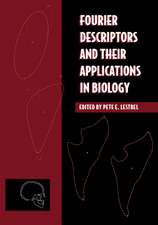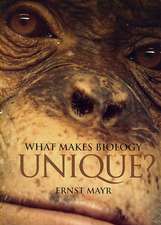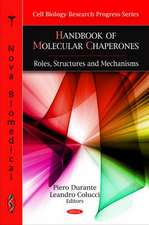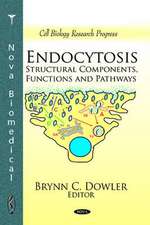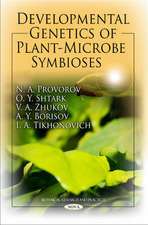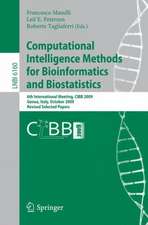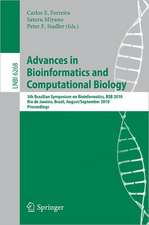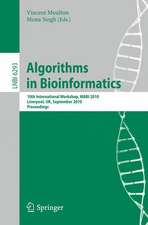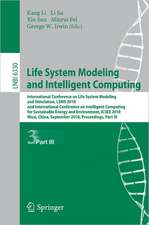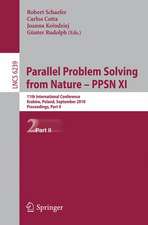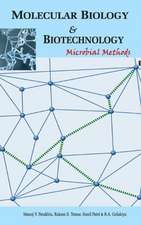Bioethics: An Introduction
Autor Marianne Talboten Limba Engleză Paperback – 16 mai 2012
Preț: 424.83 lei
Nou
Puncte Express: 637
Preț estimativ în valută:
81.32€ • 88.36$ • 68.35£
81.32€ • 88.36$ • 68.35£
Carte tipărită la comandă
Livrare economică 21 aprilie-05 mai
Preluare comenzi: 021 569.72.76
Specificații
ISBN-13: 9780521714594
ISBN-10: 0521714591
Pagini: 476
Ilustrații: 54 b/w illus. 1 table 233 exercises
Dimensiuni: 189 x 246 x 22 mm
Greutate: 1.02 kg
Editura: Cambridge University Press
Colecția Cambridge University Press
Locul publicării:Cambridge, United Kingdom
ISBN-10: 0521714591
Pagini: 476
Ilustrații: 54 b/w illus. 1 table 233 exercises
Dimensiuni: 189 x 246 x 22 mm
Greutate: 1.02 kg
Editura: Cambridge University Press
Colecția Cambridge University Press
Locul publicării:Cambridge, United Kingdom
Cuprins
Preface; Using this book; Notes for instructors; Part I. Bioethics and Ethics: 1. Biotechnology and bioethics: what it's all about; 2. Ethics in general: ethics, action and freedom; 3. Ethics in the context of society: ethics, society and the law; 4. Ethical theories: virtue, duty and happiness; 5. Identifying and evaluating arguments: logic and morality; 6. General arguments: unnatural, disgusting, risky, only opinion; Part II. The Beginning and End of Life; Section 1. Cloning: 7. Therapeutic cloning: the moral status of embryos; 8. Reproductive cloning: science and science fiction; Section 2. Reproduction: 9. Reproductive freedom: rights, responsibilities and choice; 10. The resources of reproduction: eggs, sperm and wombs for sale; 11. Screening and embryo selection: eliminating disorders or people?; Section 3. Ageing and Death: 12. Ageing and immortality: the search for longevity; 13. Death and killing: the quality and value of life; Part III. In the Midst of Life; Section 1. Our Duties to Ourselves: 14. Human enhancement: the more the better?; 15. Bio-information: databases, privacy and the fight against crime; 16. Security and defence: security sensitivity, publication and warfare; Section 2. Our Duties to Each Other: 17. Food and energy security: GM food, biofuel and the media; 18. Bio-ownership: who owns the stuff of life?; 19. Human justice: the developed and developing worlds; Section 3. Our Duties to Nature: 20. Non-human animals: consciousness, rationality and animal rights; 21. The living and non-living environment: spaceship Earth; Index.
Recenzii
'This book is an excellent, unique and comprehensive resource for either an undergraduate or a graduate course. With its wonderful introduction into ethical theory and a multifaceted approach, it is an incomparable resource for the successful teaching of bioethics. The author's eloquent writing … carefully examines practically every aspect of [this] exciting interdisciplinary [field] … a valuable reading of interest for both students and scholar[s], alike.' Mirjana Brockett, Georgia Institute of Technology, Atlanta
'I do not know of a better introduction and I suspect that it may become the standard text for years to come. It aims to give a sound introduction to people who have had little or no experience of ethics or philosophy, and it does so in a lively, rich and very readable way. Most important of all, it tries to engender a genuinely philosophical approach: fair-minded, rational and critical … a freshness and clarity that will stimulate thinking and discussion even amongst the most jaded students … I feel confident that nurses with the skills of reasoning and the fairness of mind that Bioethics: An Introduction is designed to provide will bring credit to themselves, to their patients and to the health services within which they work.' Nursing Philosophy
'… admirably accessible and organised … this book not only makes learning about profound topics easier and more interesting, but it provides lessons for instructors to become more effective teachers.' The Quarterly Review of Biology
'I do not know of a better introduction and I suspect that it may become the standard text for years to come. It aims to give a sound introduction to people who have had little or no experience of ethics or philosophy, and it does so in a lively, rich and very readable way. Most important of all, it tries to engender a genuinely philosophical approach: fair-minded, rational and critical … a freshness and clarity that will stimulate thinking and discussion even amongst the most jaded students … I feel confident that nurses with the skills of reasoning and the fairness of mind that Bioethics: An Introduction is designed to provide will bring credit to themselves, to their patients and to the health services within which they work.' Nursing Philosophy
'… admirably accessible and organised … this book not only makes learning about profound topics easier and more interesting, but it provides lessons for instructors to become more effective teachers.' The Quarterly Review of Biology
Notă biografică
Descriere
This book clearly explains bioethical issues and their philosophical foundations to science students, encouraging critical thinking about the ethics of biotechnology.

